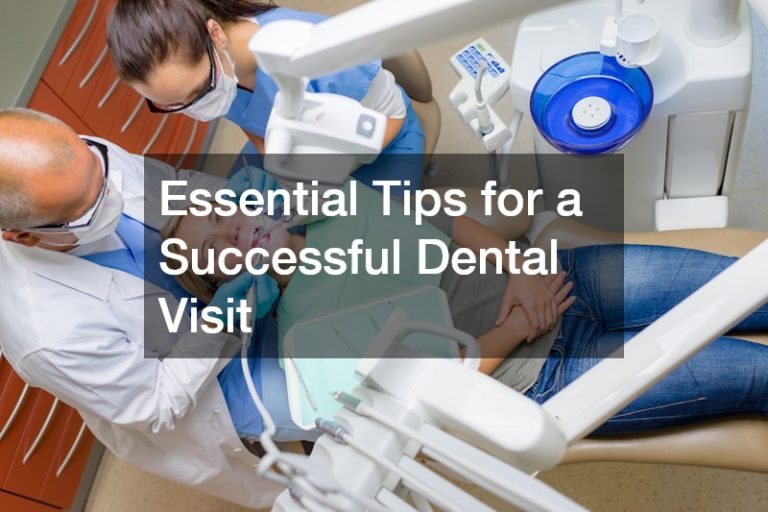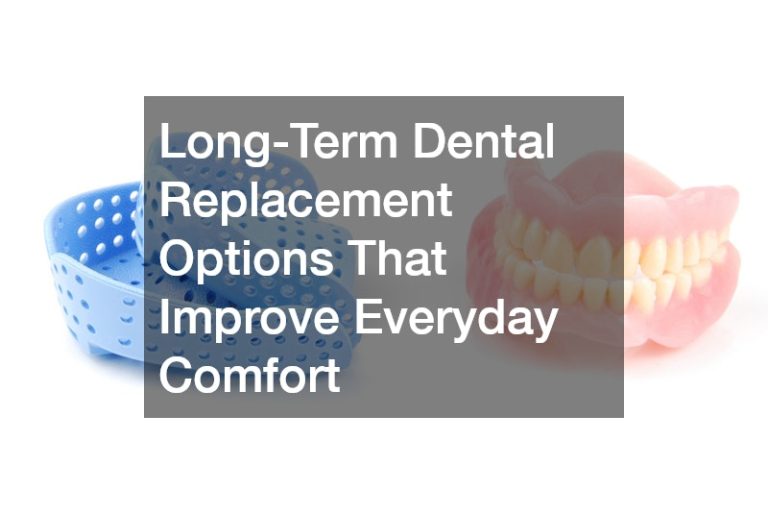Medical Problems Your Oral Health Can Detect
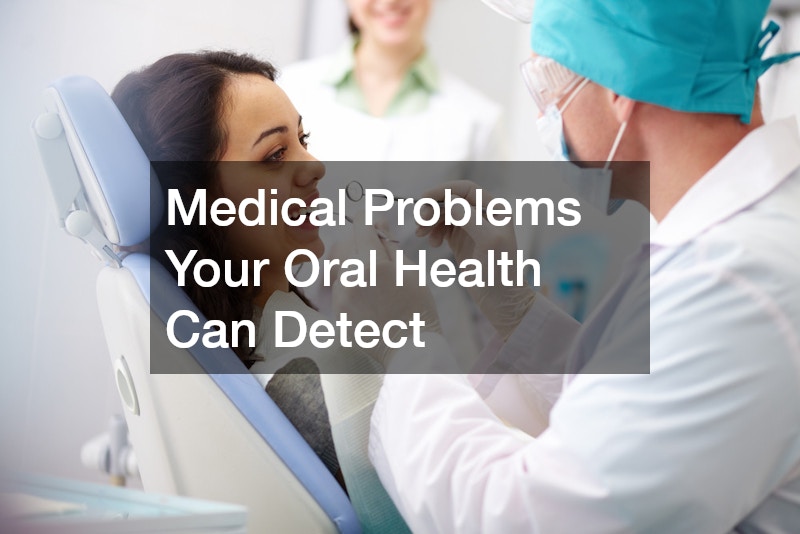
Many people think of the mouth as separate from the rest of the body, but in reality, your oral health offers valuable clues about your overall well-being. The condition of your gums, teeth, and tongue can serve as early indicators of systemic health issues—sometimes even before symptoms appear elsewhere. Regular dental checkups not only keep your smile healthy but can also help detect serious conditions such as diabetes, heart disease, autoimmune disorders, and more. In this comprehensive guide, we’ll explore how your mouth can signal other medical problems and why consistent oral care is essential for your total health.

The Mouth as a Window to Your Health
Oral health is deeply connected to the rest of the body. When bacteria from gum disease or tooth decay enter the bloodstream, they can trigger inflammation and affect other organs. This link between oral and systemic health is one reason why family dentists often emphasize prevention and early detection. A trained eye can spot subtle signs—like swollen gums, mouth sores, or dry mouth—that could point to much larger health concerns. By addressing these issues early, your dentist can help prevent complications that might otherwise go unnoticed until they become serious medical conditions.
Gum Disease and Heart Health
Research continues to show a strong correlation between gum disease and cardiovascular issues. Chronic inflammation in the gums can contribute to plaque buildup in the arteries, increasing the risk of heart attack or stroke. Dentists often notice early warning signs, such as bleeding gums or persistent bad breath, that may reflect more than just oral hygiene problems. If left untreated, gum disease can lead to bone loss and tooth loss, sometimes requiring restorative solutions such as dental implants to rebuild your smile and oral function. Maintaining healthy gums through regular cleanings and flossing plays a vital role not just in dental health but in protecting your heart as well.
How Crooked Teeth Can Affect More Than Your Smile
Misaligned teeth may seem like a cosmetic issue, but they can also contribute to headaches, jaw pain, and even digestive problems due to improper chewing. In recent years, clear aligner systems such as Invisalign have made it easier than ever for patients to discreetly straighten their teeth and improve their oral alignment. Proper alignment ensures a balanced bite, which helps prevent uneven wear on teeth and reduces stress on the temporomandibular joint (TMJ). Beyond aesthetics, correcting misalignment can enhance speech, breathing, and overall comfort, leading to better oral and systemic health outcomes.
Oral Health and Diabetes
The connection between oral health and diabetes is well-documented. People with diabetes are more susceptible to infections, including gum disease, due to reduced blood flow and slower healing. Likewise, untreated gum disease can make it harder to control blood sugar levels, creating a vicious cycle. Good oral hygiene and regular visits to your dental office are essential for managing both conditions. Modern dentistry offers advanced diagnostic tools and preventive treatments that allow dental professionals to identify inflammation or infection early, helping patients with diabetes maintain both oral and overall health stability.

Autoimmune Diseases and Oral Symptoms
Autoimmune conditions such as lupus, rheumatoid arthritis, and Sjögren’s syndrome can manifest in the mouth long before they are diagnosed. Symptoms like dry mouth, mouth ulcers, or jaw stiffness may signal immune system dysfunction. A skilled dentist can recognize these signs and refer patients for further medical evaluation. For instance, persistent dryness can lead to an increased risk of cavities and oral infections. Early detection through dental exams can help patients receive medical care sooner and avoid secondary complications related to both oral and systemic inflammation.
Osteoporosis and Jawbone Changes
Osteoporosis, a condition that weakens bones, doesn’t just affect the hips or spine—it can also impact the jawbone. Dentists sometimes notice the first signs of bone density loss through dental X-rays, which reveal thinning bone around the teeth. If the bone weakens significantly, it can cause teeth to loosen or shift. A family dentist may coordinate with your physician to ensure you’re getting appropriate screening and treatment. Maintaining bone health through calcium-rich diets, proper medication, and routine oral care is vital for preserving both your teeth and your skeletal structure.
Respiratory Health and Oral Bacteria
The mouth serves as a gateway to the respiratory system. Bacteria from periodontal disease can be inhaled into the lungs, potentially leading to respiratory infections such as pneumonia or chronic obstructive pulmonary disease (COPD). This risk is especially high among older adults or those with weakened immune systems. Regular cleanings from local dentists can drastically reduce bacterial buildup and help maintain a healthy mouth and airway. By keeping gum disease in check, patients can lower their chances of developing respiratory complications linked to oral pathogens.
Children’s Oral Health and Early Detection
Oral health concerns can start at a young age, which is why early dental visits are crucial. Many systemic conditions in children—such as celiac disease or vitamin deficiencies—can first show symptoms in the mouth. Specialized pediatric dentistry helps identify issues like delayed tooth eruption, enamel defects, or gum inflammation that might signal underlying medical problems. Pediatric dentists also educate parents about proper nutrition, fluoride use, and preventive care, ensuring that children develop healthy habits for life. Regular checkups during childhood can lead to early intervention and improved lifelong health outcomes.

Oral Cancer and Early Screening
One of the most serious health conditions your dentist can detect is oral cancer. During routine exams, dental professionals screen for unusual patches, lumps, or discolorations inside the mouth and on the tongue. Early detection dramatically improves treatment outcomes. However, certain lifestyle factors such as tobacco use, alcohol consumption, and human papillomavirus (HPV) can increase risk. Brightening your smile with a professional teeth whitening service is a common request, but during those appointments, your dentist is also looking for potential signs of disease—making aesthetic visits just as important for overall health screening.
Hormonal Changes and Oral Health
Hormonal fluctuations throughout life—during puberty, pregnancy, and menopause—can affect the gums and oral tissues. Pregnant women, for example, are more prone to gingivitis due to increased blood flow and sensitivity in the gums. Dentists may also notice changes related to thyroid disorders or hormonal imbalances. Regular visits to a family practice that provides comprehensive care allow your healthcare team to coordinate treatment, ensuring that both your dental and medical needs are addressed holistically. Maintaining balance through diet, oral hygiene, and routine monitoring helps mitigate the oral effects of hormonal shifts.
Digestive Disorders and Oral Indicators
Problems in the digestive system often show up first in the mouth. Acid reflux (GERD), for instance, can erode tooth enamel and leave a sour taste or burning sensation. Dentists may identify these signs during exams and recommend lifestyle changes or medical consultation. Likewise, nutritional deficiencies—particularly in vitamins B12, D, and iron—can lead to mouth sores, a swollen tongue, or gum problems. Detecting these symptoms early helps patients address deficiencies before they lead to broader health issues. Oral signs are sometimes the body’s first call for help, making routine dental visits essential to long-term wellness.
Neurological Disorders and Oral Clues
Changes in oral sensation, facial movement, or bite pattern can be early indicators of neurological disorders. Conditions like multiple sclerosis or Parkinson’s disease may cause difficulty swallowing, dry mouth, or tremors that interfere with oral hygiene. Dentists are often among the first to notice these subtle changes. Early referral for medical evaluation can lead to timely diagnosis and intervention. Maintaining good oral hygiene is particularly important for individuals with neurological conditions, as limited dexterity can make plaque control more difficult.
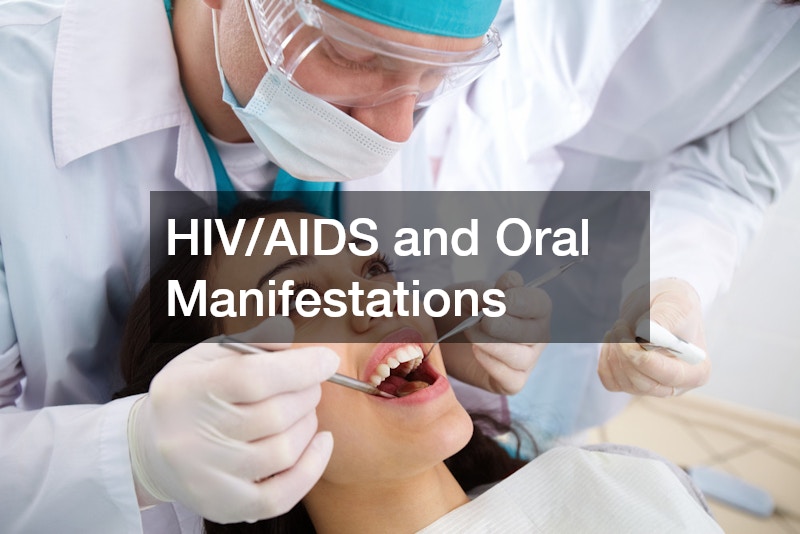
HIV/AIDS and Oral Manifestations
HIV and other immune-compromising diseases frequently present with oral symptoms. Persistent fungal infections, white patches (leukoplakia), or unusual lesions can appear in the mouth due to lowered immunity. Regular dental visits are essential for patients managing these conditions, as early recognition and treatment of oral manifestations can improve comfort and quality of life. Dentists collaborate closely with physicians to ensure that oral health remains stable as part of a broader care plan. Compassionate, informed dental care helps reduce complications and supports systemic healing.
Stress, Anxiety, and Oral Health
Emotional stress can also leave visible traces in your mouth. Bruxism, or teeth grinding, is a common stress-related habit that can wear down enamel, cause jaw pain, and even lead to cracked teeth. Dentists often detect bruxism through uneven tooth wear or jaw muscle tenderness. Stress can also weaken the immune response, increasing susceptibility to gum disease and infections. Relaxation techniques, mouthguards, and regular dental checkups help protect your oral structures while you manage psychological well-being. Recognizing the connection between mental and oral health underscores the holistic nature of dentistry.
Sleep Apnea and Oral Structure
Sleep apnea, a disorder that causes interrupted breathing during sleep, is often linked to the anatomy of the jaw and airway. Dentists may notice signs such as worn teeth from nighttime grinding, dry mouth, or a scalloped tongue. Custom oral appliances made by dental professionals can help reposition the jaw to keep airways open during sleep. Identifying sleep-related breathing issues early not only improves rest and energy levels but also reduces the risk of cardiovascular complications and cognitive decline.
The Importance of Regular Checkups
Seeing your dentist regularly is one of the most effective ways to detect systemic diseases early. Even if you brush and floss daily, only professional exams can identify deeper issues like jawbone loss, gum inflammation, or subtle mucosal changes. Your dental team serves as a frontline defense, catching early symptoms of conditions that may otherwise go unnoticed. By maintaining consistent oral care and scheduling regular cleanings, you’re investing not just in your smile but in your long-term health and well-being.
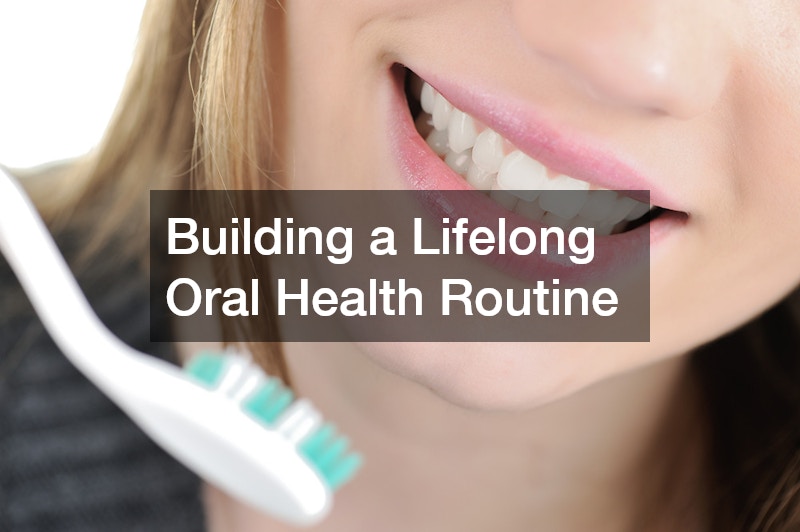
Building a Lifelong Oral Health Routine
Prevention remains the cornerstone of good health. Developing strong oral hygiene habits—brushing twice daily, flossing, using mouthwash, and maintaining a balanced diet—can prevent both oral and systemic disease. Drinking plenty of water, avoiding tobacco, and limiting sugar intake further support gum and tooth health. Partnering with a trusted dental provider ensures you have guidance tailored to your unique needs, empowering you to make informed decisions about your care.
Nutrition Deficiencies and Oral Warning Signs
Your diet has a direct impact on your oral and overall health. When your body lacks essential nutrients like vitamin C, D, calcium, or iron, the effects often show up in your mouth first. Bleeding gums, mouth sores, and delayed healing can indicate a deficiency in vitamin C, while weak enamel and tooth sensitivity might point to a shortage of vitamin D or calcium. Iron deficiency, on the other hand, can lead to a pale tongue or cracked corners of the mouth. Dentists frequently spot these clues during regular exams, helping patients address nutritional gaps before they worsen. Maintaining a balanced diet rich in fruits, vegetables, lean proteins, and whole grains not only keeps your smile strong but also supports immune function and bone health. When combined with consistent oral hygiene and professional care, good nutrition becomes a powerful tool for disease prevention—underscoring the intimate connection between what you eat and the health of your entire body.
Hormonal Health and Oral Indicators
Changes in hormone levels can significantly affect your oral health, and your mouth often reflects these internal shifts before other symptoms appear. For instance, during puberty, pregnancy, or menopause, hormonal fluctuations can make gums more sensitive, inflamed, or prone to bleeding. Pregnant women may experience “pregnancy gingivitis,” while menopausal individuals sometimes notice dry mouth or burning sensations. Even thyroid disorders can manifest as changes in the tongue’s texture or the rate of tooth decay. Dentists are trained to recognize these patterns and can recommend preventive steps or refer you to a healthcare provider for further testing. Paying attention to these oral indicators can lead to earlier diagnosis of hormonal imbalances and help reduce complications. Maintaining consistent oral hygiene, managing stress, and scheduling regular dental visits all contribute to a healthier hormonal and oral balance. By understanding the mouth-body connection, patients can take proactive steps to support both their dental and endocrine health.
From the condition of your gums to the color of your tongue, your mouth often speaks volumes about what’s happening inside your body. Regular dental visits are far more than cosmetic maintenance—they’re a form of preventive healthcare that can help detect serious conditions early on. With the guidance of qualified dental professionals and consistent home care, you can maintain a beautiful smile and a healthier, longer life.
